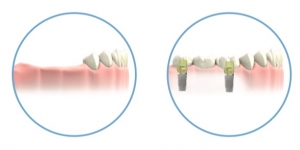UK Smile, 81 Buckingham Gate, London SW1E 6PE
Telephone: +44 02072332323 Emergency: +44 02077888495
Cookie Privacy Preferences
We utilize essential cookies to ensure our website operates effectively and remains secure. Additionally, we'd like to request your permission to use optional cookies. These are intended to enhance your browsing experience by offering personalized content, displaying advertisements that are relevant to you, and helping us to further refine our website.
Choose "Accept all cookies" to agree to the use of both essential and optional cookies. Alternatively, select "Let me see" to customize your preferences.
Privacy Preference Centre
Our website utilizes cookies to enhance your browsing experience and to present you with content tailored to your preferences on this device and browser. Below, you will find detailed information about the function of cookies, enabling you to make informed choices about which cookies you wish to accept. Please note that disabling certain cookies might impact your user experience on our site. It's important to remember that cookie preferences need to be set individually for each device and browser you use. Clearing your browser's cache may also remove your cookie settings. You have the freedom to modify your cookie preferences at any point in the future.
For a comprehensive understanding of our use of cookies, please refer to our complete cookies policy.
These cookies are needed for the website to work and for us to fulfil our contractual obligations. This means they can't be switched off. They enable essential functionality such as security, accessibility and live chat support. They also help us to detect and prevent fraud. You can set your browser to block or alert you about these cookies, but it means some parts of the site won't work.
These cookies allow us to measure and improve the performance of our site. They help us to know how popular pages are, and to see how visitors move around the site. If you don't allow these cookies, we won't know when you've visited our site, and we won't be able to monitor its performance.
These cookies enable us to provide enhanced functionality and personalisation. They may be set by us or by third party providers whose services we've added to our pages. If you don't allow these cookies, some or all of these services may not work properly.
These cookies collect information about your browsing habits to show you personalised adverts. They may be used to build a profile of your interests and show you relevant adverts on other sites. They don't store directly personal information, but are based on uniquely identifying your browser and internet device. If you don't allow these cookies, the adverts you see will be less relevant.
UK Smile, 81 Buckingham Gate, London SW1E 6PE
Telephone: +44 02072332323 Emergency: +44 02077888495
We have helped thousands of patients regain or improve their appearance and function with dental implants. Our experience, equipment and techniques mean:
A dental implant is a titanium (or zirconia) screw that effectively replaces the root of a tooth. The surrounding jaw bone grows and bonds to the surface of the implant. This provides a secure attachment which can support one or more teeth. We usually place implants under local anaesthetic, but we do also provide the option of sedation for nervous patients.
A single implant can be used used to support a single crown if only one tooth is missing, or if more than one adjacent tooth is missing, an implant-supported bridge can be used – as an example, 2 implants can be used to support a 3 tooth bridge.

We normally advise you to have implants placed either immediately or within a few months of taking teeth out, as this helps to preserve the part of the jaw bone that gradually disappears in the absence of teeth or implants.
Dental implants can still be placed at a later date, but other procedures may be required to build up more bone (bone augmentation). If required, this is most often done at the same time as implant placement, but in some cases has to be done a few months beforehand. It can be more difficult to replace soft tissue (gum) once it has been lost, so early placement can improve aesthetics.
We recommend that most implant cases have a CBCT scan (3D bone scan) done beforehand. This provides a reliable and accurate assessment of the bone, so we know in advance the size and ideal position of implants. It will also allow us to determine if any bone augmentation procedures will be necessary.
It is unusual to see a case where we cannot find a solution. We can treat the vast majority of cases by augmenting the existing bone with one of various techniques, or placing implants where bone still exists (such as the All-on-4 technique).
* – T&Cs apply. Please quote ‘IM18’ when booking the appointment. A CBCT scan will only be taken for suitable cases after the initial proposed treatment plan has been accepted.
